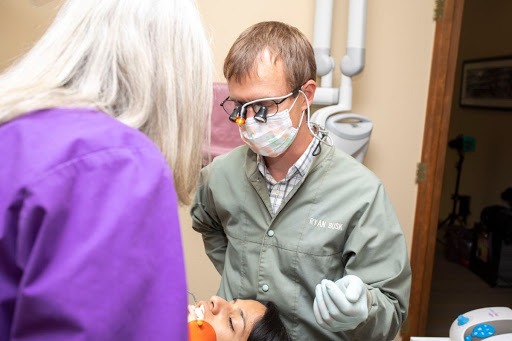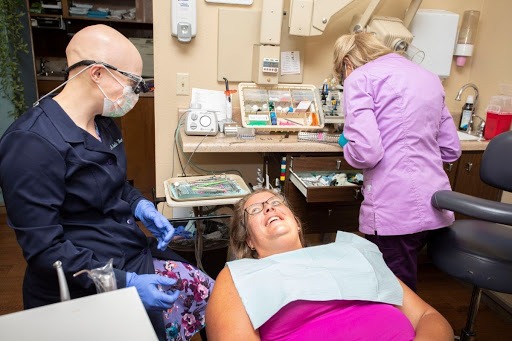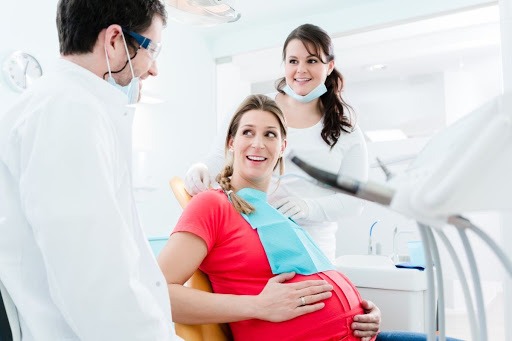If you’ve recently found out you’re pregnant, congratulations! You’ve probably received so much well-meaning advice from family and friends that you’re not sure what to do. Your top-priority, of course, is the health of your baby, and you want to do anything you can to keep your baby healthy as it grows before and after birth. Some that can sometimes be forgotten in the excitement and exhaustion is your dental health during pregnancy, and the effect it can have on your overall health and the health of your baby.
Every if you typically take impeccable care of your teeth and mouth, the hormonal changes and stress that come as a part of pregnancy can cause some unwanted oral health issues. Periodontal disease has been shown to be linked to premature birth and low birth weight, and bacteria from tooth decay or infection can be passed to your baby. A Cashmere Family Dentistry, we’ll help you take the best care of yourself and your growing family. Keep reading to learn about how to maintain your dental health during pregnancy.
How Hormones Affect Your Oral Health
Hormones are an essential part of growing a baby. Unfortunately, they also cause many of the most unpleasant symptoms of pregnancy like nausea, moodiness, and cravings or food aversions. Hormones can also play a part and making your gums swell when you’re pregnant. This condition is called pregnancy gingivitis. Hormones can increase the blood flow to your gums, while also making them more sensitive to plaque and bacteria.
According to the American Pregnancy Association, if you notice that your gums are bleeding more than usual the best thing to do is be proactive and seek out the advice of your dentist. If gingivitis isn’t treated correctly, it can progress and damage the bone that holds your teeth in place and cause your teeth to loosen or even fall out this is called periodontal disease. Since your hormones can affect how your body reacts to bacteria in your mouth, periodontal issues can develop much more quickly. Typically, these symptoms will be most severe during your second trimester.
Your dentist may recommend coming in for professional cleanings more often. At home, keep brushing twice a day, and flossing once a day. This can be hard when you’re exhausted, but it’s worth it to keep your baby healthy! Try using a soft-bristled toothbrush to reduce irritating your gums. While flossing may be uncomfortable, it is especially important when you’re gums are swollen because bits of food can get stuck in hard-to-reach places.

Pregnancy and Tooth Erosion.
While satisfying your cravings for treats might just what you need after a long, uncomfortable day, but the bad news is that it may be harming your teeth more than you realize. Bacteria love acid and can multiply and produce more acid that can weaken the enamel on your teeth. Snacking more frequently, regardless of whether or not it’s sweet, can weaken your teeth because they are exposed to harmful acid for a larger portion of the day. Make sure to drink lots of water to help rinse acid and bacteria off of your teeth. Fluoride mouthwash can also help keep your teeth clean, while also preventing bad breath if your hormones are causing an increase in plaque.
Vomiting due to morning sickness can also significantly erode your teeth, as the acid from your stomach sits on your teeth. While you, unfortunately, may not be able to do much to stop morning sickness, but you can take some simple steps to help minimize tooth erosion.
- Don’t brush your teeth right away. Brushing your teeth is abrasive, so doing it when your enamel is already weakened by acid can scratch your enamel.
- Rinse with your mouth with water.
- Follow this with a fluoridated mouthwash.
- If you don’t have mouthwash, gently rub toothpaste on your teeth with your finger.
- After at least an hour, you can brush your teeth with your soft-bristled toothbrush.
Pregnancy Tumors
Though the name may be scary, these tumors are not cancer, so don’t worry. They’re lumps that form on your gum between your teeth. Pregnancy tumors look red and raw and usually bleed easily. They can be a result of having too much plaque. They usually go away on their own after giving birth, but in rare cases, they may need to be removed. If they are especially uncomfortable, let Drs. Busk or Dr. Harris know, and they may determine to remove them while you’re still pregnant.

Dental Care During Pregnancy
If you’re pregnant or planning on getting pregnant, schedule an appointment for Bust Family Dentistry. We can assess the current condition of your teeth and take care of any pressing issues that could affect your baby. They can also determine how often you should come in for dental cleanings during your pregnancy. Tell your doctor about any medications you take or if your pregnancy is high risk. This might affect your treatment plan. Dental checkups before and during pregnancy are important so your dentist can find and treat dental problems early. And regular teeth cleanings help keep your teeth and gums healthy.
Some people may worry that x-rays will harm their baby, but they’re perfectly safe! Dental x-rays use very small amounts of radiation and your dentist will cover you with a special apron and collar to protect you and your baby. If your dentist wants to give you an X-ray, make sure she knows that you’re pregnant or trying to get pregnant.
If you need a dental procedure done, your dentist will most likely schedule it during the second trimester, unless it’s an emergency. Local anesthesia is safe to use during pregnancy for treatments like fillings and extractions. If your dentist prescribes any medication after your treatment, check with your prenatal care provider before taking it.
Give Your Baby a Great Start with Dental Care from Cashmere Family Dentistry
The dentist can be a great help in keeping your mouth (and your baby) healthy during pregnancy. If you ever notice symptoms such as bad breath, loose teeth, mouth sores or lumps, new spaces between your teeth, receding or painful gums, contact us right away. And of course, maintain good oral habits like brushing your teeth and flossing. Remember that you’re not just doing it for yourself, but for your baby!
If you’re pregnant or planning on becoming pregnant, schedule an appointment with Cashmere Family Dentistry to get a head start on a healthy smile for you and your growing family!




